Abstract:
The optimal utilisation of distribution grids requires the proactive management of volatilities caused by mixed energy resources installed into different grid levels, suc...Show MoreMetadata
Abstract:
The optimal utilisation of distribution grids requires the proactive management of volatilities caused by mixed energy resources installed into different grid levels, such as buildings, energy communities (ECs) and substations. In this context, proactive control based on predictions for energy demand and generation is applied. The mitigation of conflicts between the stakeholders' objectives is the main challenge for the control of centralized and distributed energy resources. In this article, a bi-level approach is proposed for the control of stationary battery energy storage systems (SBES) supporting the local distribution system operator (DSO) at the transformer level, as well as distributed energy resources (DERs) operated by end customers, i.e., EC-members. Model predictive control (MPC)-based and hybrid approaches merging rule- and MPC-based control schemes are evaluated. Simulation studies based on a typical European low voltage (LV) feeder topology yield the performance assessment in terms of technical and economic criteria. The results show an advantage of hybrid approaches with respect to the DSO's cost savings from peak shaving. From the EC's perspective, both hybrid and MPC-based schemes can achieve effective cost savings from proactive energy management.
Published in: IEEE Transactions on Sustainable Energy ( Volume: 15, Issue: 2, April 2024)
Funding Agency:
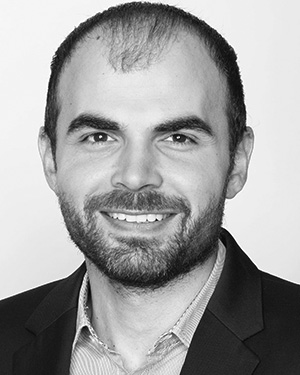
Institute of Electric Power Systems, University of Applied Sciences and Arts Northwestern Switzerland (FHNW IEE), Windisch, Switzerland
Nikolaos Efkarpidis received the master's degree from the Department of Electrical and Computer Engineering, Aristotle University of Thessaloniki, Thessaloniki, Greece, in 2010, and the Doctorate degree in electrical engineering from the Group of ESAT, KU Leuven, Leuven, Belgium, in 2016. He is currently a Software Product Manager with Secure Switzerland AG. His research interests include the power quality control in powe...Show More
Nikolaos Efkarpidis received the master's degree from the Department of Electrical and Computer Engineering, Aristotle University of Thessaloniki, Thessaloniki, Greece, in 2010, and the Doctorate degree in electrical engineering from the Group of ESAT, KU Leuven, Leuven, Belgium, in 2016. He is currently a Software Product Manager with Secure Switzerland AG. His research interests include the power quality control in powe...View more
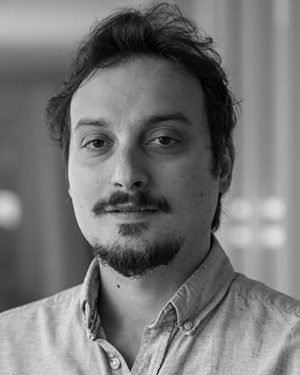
Dalle Molle Institute for Artificial Intelligence (IDSIA), Università della Svizzera Italiana (USI), Lugano, Switzerland
Stefano Imoscopi received the master's degree in computer science from Delft University of Technology, Delft, Netherlands, and the KTH Royal Institute of Technology, Stockholm, Sweden, as part of the EIT Digital double degree Program. After two years in the industry at Capgemini, working on R&D and ICT projects, he joined the Swiss AI Lab (IDSIA, USI) as scientific collaborator, where he focuses on applied research projec...Show More
Stefano Imoscopi received the master's degree in computer science from Delft University of Technology, Delft, Netherlands, and the KTH Royal Institute of Technology, Stockholm, Sweden, as part of the EIT Digital double degree Program. After two years in the industry at Capgemini, working on R&D and ICT projects, he joined the Swiss AI Lab (IDSIA, USI) as scientific collaborator, where he focuses on applied research projec...View more
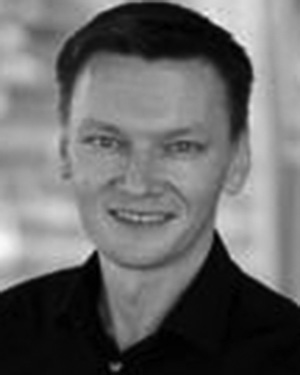
Center for Distributed Systems and Sensor Networks, Department for Integrated Sensor Systems, University for Continuing Education Krems, Wiener Neustadt, Austria
Aleksey Bratukhin received the master's degree in electrical engineering (focus on fieldbus systems) in 1998. He finished his Ph.D. thesis in 2006 titled Manufacturing Execution System Distribution via Intelligent Software Agents. In 2006, he joined the Department for Integrated Sensor System to continue research in the field of distributed control systems. His focus gradually shifted towards machine learning and model pr...Show More
Aleksey Bratukhin received the master's degree in electrical engineering (focus on fieldbus systems) in 1998. He finished his Ph.D. thesis in 2006 titled Manufacturing Execution System Distribution via Intelligent Software Agents. In 2006, he joined the Department for Integrated Sensor System to continue research in the field of distributed control systems. His focus gradually shifted towards machine learning and model pr...View more
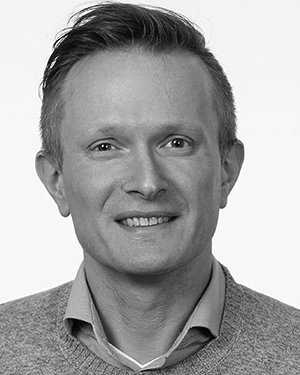
Research Institutes of Sweden (RISE), Luleå, Sweden
Rickard Brännvall is currently a Senior Researcher in applied
AI with the RISE Research Institutes of Sweden, Gothenburg, Sweden, where he works on applications with Data Centers
treating it as a cyberphysical system subject to monitoring and control. His research interests include
privacy-enhancing technologies, for example, privacy-preserving machine learning using healthrelated data.
Rickard Brännvall is currently a Senior Researcher in applied
AI with the RISE Research Institutes of Sweden, Gothenburg, Sweden, where he works on applications with Data Centers
treating it as a cyberphysical system subject to monitoring and control. His research interests include
privacy-enhancing technologies, for example, privacy-preserving machine learning using healthrelated data.View more
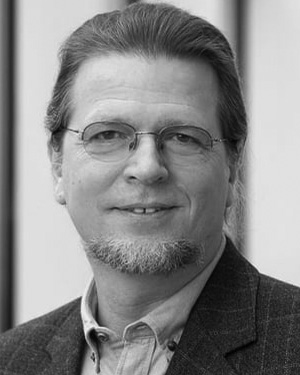
Center for Distributed Systems and Sensor Networks, Department for Integrated Sensor Systems, University for Continuing Education Krems, Wiener Neustadt, Austria
Gerald Franzl received the Dr. Techn. (Ph.D.) and Dipl.-Ing. (M.Sc.) degrees in electrical engineering from TU Wien, Vienna, Austria. From February 2020 to March 2023, he was with TU Wien and Danube University Krems, Krems, Austria, contributing to the R&D projects SONDER and cFlex on regional and local energy communities. Since April 2023 he works full time at University for Continuing Education Krems (former Danube Univ...Show More
Gerald Franzl received the Dr. Techn. (Ph.D.) and Dipl.-Ing. (M.Sc.) degrees in electrical engineering from TU Wien, Vienna, Austria. From February 2020 to March 2023, he was with TU Wien and Danube University Krems, Krems, Austria, contributing to the R&D projects SONDER and cFlex on regional and local energy communities. Since April 2023 he works full time at University for Continuing Education Krems (former Danube Univ...View more
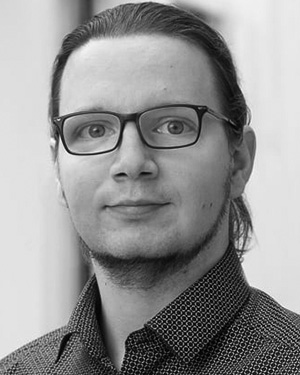
Energy&IT Group, Institute of Computer Technology, TU Wien, Vienna, Austria
Thomas Leopold recieved the Dipl.-Ing. (M.Sc.) degree in electrical engineering from TU Wien, Vienna, Austria, in embedded systems. From November 2020, he has been employed at TU Wien, contributing to the R&D projects SONDER and cFlex on developing community controller frameworks and simulating energy communities. His research interests include autonomous farming, energy communities and renewable energy in general. Apart ...Show More
Thomas Leopold recieved the Dipl.-Ing. (M.Sc.) degree in electrical engineering from TU Wien, Vienna, Austria, in embedded systems. From November 2020, he has been employed at TU Wien, contributing to the R&D projects SONDER and cFlex on developing community controller frameworks and simulating energy communities. His research interests include autonomous farming, energy communities and renewable energy in general. Apart ...View more
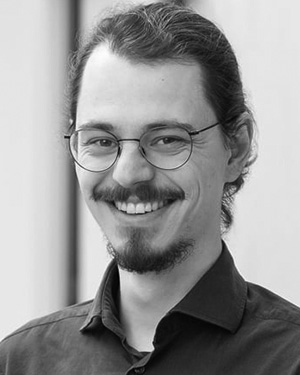
Energy&IT Group, Institute of Computer Technology, TU Wien, Vienna, Austria
Valentin Bauer received the bachelor's degree in computer science TU Wien, Vienna, Austria, where he is currently working toward the master's degree in data science. Since 2019, he has been employed at TU Wien, actively contributing to the R&D projects SONDER and cFlex. His research interets include modeling, optimizing and simulating energy communities. His professional research interests focuses on creating practical so...Show More
Valentin Bauer received the bachelor's degree in computer science TU Wien, Vienna, Austria, where he is currently working toward the master's degree in data science. Since 2019, he has been employed at TU Wien, actively contributing to the R&D projects SONDER and cFlex. His research interets include modeling, optimizing and simulating energy communities. His professional research interests focuses on creating practical so...View more

Energy&IT Group, Institute of Computer Technology, TU Wien, Vienna, Austria
Andrija Goranovic received the Dipl.-Ing. degree (M.Sc. equivalent) in electrical engineering and the M.B.A. degree in digital transformation & change management from TU Wien, Vienna, Austria. Since 2019, he has been working on the R&D projects SONDER and cFlex. His professional research interests include smart grids, renewable energy integration, digital transformation, innovative technologies and business process manage...Show More
Andrija Goranovic received the Dipl.-Ing. degree (M.Sc. equivalent) in electrical engineering and the M.B.A. degree in digital transformation & change management from TU Wien, Vienna, Austria. Since 2019, he has been working on the R&D projects SONDER and cFlex. His professional research interests include smart grids, renewable energy integration, digital transformation, innovative technologies and business process manage...View more
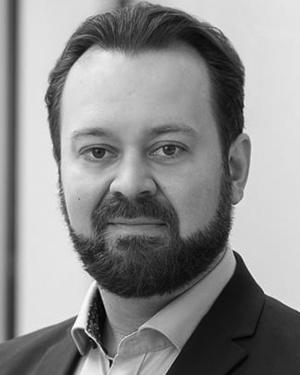
Energy&IT Group, Institute of Computer Technology, TU Wien, Vienna, Austria
Stefan Wilker received the Dipl.-Ing. degree (M.Sc. equivalent) in media and human-centered computing. Since 2019, he has been the Head of the Energy & IT Group, Institute of Computer Technology, TU Wien, Vienna, Austria. His research interests include project coordination of the R&D projects SONDER and cFlex with research topics on regional and local energy communities. Other research activities deal with smart grids, en...Show More
Stefan Wilker received the Dipl.-Ing. degree (M.Sc. equivalent) in media and human-centered computing. Since 2019, he has been the Head of the Energy & IT Group, Institute of Computer Technology, TU Wien, Vienna, Austria. His research interests include project coordination of the R&D projects SONDER and cFlex with research topics on regional and local energy communities. Other research activities deal with smart grids, en...View more
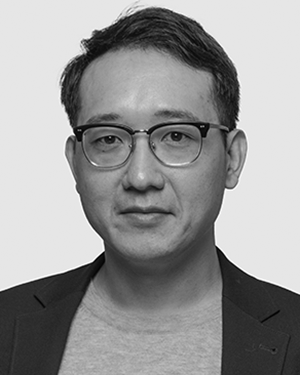
Department of Computer Science, Electrical and Space Engineering, Luleå University of Technology (LTU), Luleå, Sweden
Chen-Wei Yang received the Bachelor of Engineering degree (Hons.) in computer systems engineering and the M.E. degree (Hons.) from The University of Auckland, Auckland, New Zealand, in 2011 and 2012, respectively, and the Ph.D. degree from the Luleå University of Technology, Luleå, Sweden, in 2018. He is currently a Domain Expert in the field of distributed systems engineering and member of IES technical committee Industr...Show More
Chen-Wei Yang received the Bachelor of Engineering degree (Hons.) in computer systems engineering and the M.E. degree (Hons.) from The University of Auckland, Auckland, New Zealand, in 2011 and 2012, respectively, and the Ph.D. degree from the Luleå University of Technology, Luleå, Sweden, in 2018. He is currently a Domain Expert in the field of distributed systems engineering and member of IES technical committee Industr...View more
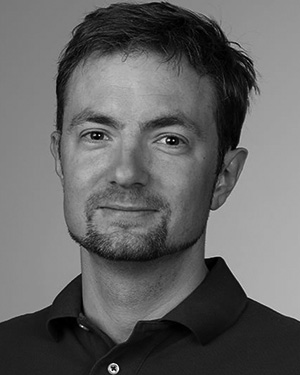
Research Institutes of Sweden (RISE), Luleå, Sweden
Jonas Gustafsson received the Ph.D. degree in industrial
electronics from the Lulea University of Technology, Luleå, Sweden, in
2011. In 2015, he joined RISE as a operations Manager for the data centre research facility I.C.E., where he also had the role as Program Manager and is currently a Senior Researcher with focus on data centre technologies and systems. System efficiency and sustainability are two topics that has b...Show More
Jonas Gustafsson received the Ph.D. degree in industrial
electronics from the Lulea University of Technology, Luleå, Sweden, in
2011. In 2015, he joined RISE as a operations Manager for the data centre research facility I.C.E., where he also had the role as Program Manager and is currently a Senior Researcher with focus on data centre technologies and systems. System efficiency and sustainability are two topics that has b...View more
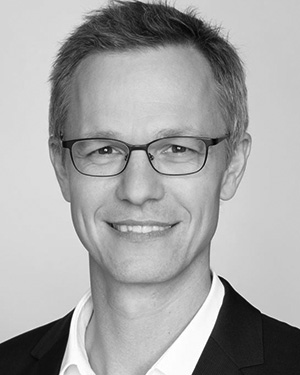
Institute of Electric Power Systems, University of Applied Sciences and Arts Northwestern Switzerland (FHNW IEE), Windisch, Switzerland
Martin Geidl received the Diploma in electrical engineering from the Graz University of Technology, Graz, Austria, and the Ph.D. degree in power systems from ETH Zurich, Zürich, Switzerland. From 2007 to 2013, he was with Swissgrid Ltd. in grid planning and operation. In 2014, he joined Tiko Energy Solutions Ltd., where he was responsible for energy services and operation of virtual power plants. Since 2018, he is a Profe...Show More
Martin Geidl received the Diploma in electrical engineering from the Graz University of Technology, Graz, Austria, and the Ph.D. degree in power systems from ETH Zurich, Zürich, Switzerland. From 2007 to 2013, he was with Swissgrid Ltd. in grid planning and operation. In 2014, he joined Tiko Energy Solutions Ltd., where he was responsible for energy services and operation of virtual power plants. Since 2018, he is a Profe...View more
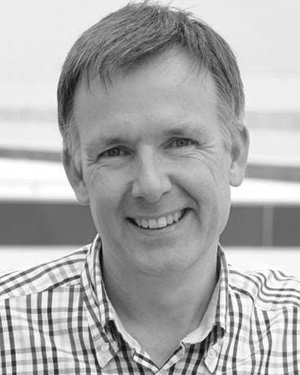
Energy&IT Group, Institute of Computer Technology, TU Wien, Vienna, Austria
Center for Distributed Systems and Sensor Networks, Department for Integrated Sensor Systems, University for Continuing Education Krems, Wiener Neustadt, Austria
Thilo Sauter (Fellow, IEEE) received the Ph.D. degree in electrical engineering from the Vienna University of Technology, TU Wien, Vienna, Austria. He is currently a Professor of automation technology with the Vienna University of Technology, TU Wien, Vienna, Austria, as well as a Senior Scientist with the University of Continuing Education Krems, Wiener Neustadt, Austria. From 2004 to 2013, he also was the Founding
Direc...Show More
Thilo Sauter (Fellow, IEEE) received the Ph.D. degree in electrical engineering from the Vienna University of Technology, TU Wien, Vienna, Austria. He is currently a Professor of automation technology with the Vienna University of Technology, TU Wien, Vienna, Austria, as well as a Senior Scientist with the University of Continuing Education Krems, Wiener Neustadt, Austria. From 2004 to 2013, he also was the Founding
Direc...View more

Institute of Electric Power Systems, University of Applied Sciences and Arts Northwestern Switzerland (FHNW IEE), Windisch, Switzerland
Nikolaos Efkarpidis received the master's degree from the Department of Electrical and Computer Engineering, Aristotle University of Thessaloniki, Thessaloniki, Greece, in 2010, and the Doctorate degree in electrical engineering from the Group of ESAT, KU Leuven, Leuven, Belgium, in 2016. He is currently a Software Product Manager with Secure Switzerland AG. His research interests include the power quality control in power systems, and development of energy management algorithms at both network and end-user level.
Nikolaos Efkarpidis received the master's degree from the Department of Electrical and Computer Engineering, Aristotle University of Thessaloniki, Thessaloniki, Greece, in 2010, and the Doctorate degree in electrical engineering from the Group of ESAT, KU Leuven, Leuven, Belgium, in 2016. He is currently a Software Product Manager with Secure Switzerland AG. His research interests include the power quality control in power systems, and development of energy management algorithms at both network and end-user level.View more

Dalle Molle Institute for Artificial Intelligence (IDSIA), Università della Svizzera Italiana (USI), Lugano, Switzerland
Stefano Imoscopi received the master's degree in computer science from Delft University of Technology, Delft, Netherlands, and the KTH Royal Institute of Technology, Stockholm, Sweden, as part of the EIT Digital double degree Program. After two years in the industry at Capgemini, working on R&D and ICT projects, he joined the Swiss AI Lab (IDSIA, USI) as scientific collaborator, where he focuses on applied research projects as part of the Graph Machine Learning Group. His main research interests include time series analysis, uncertainty estimation in forecasting and the application of graph neural networks to time series from multiple sensors.
Stefano Imoscopi received the master's degree in computer science from Delft University of Technology, Delft, Netherlands, and the KTH Royal Institute of Technology, Stockholm, Sweden, as part of the EIT Digital double degree Program. After two years in the industry at Capgemini, working on R&D and ICT projects, he joined the Swiss AI Lab (IDSIA, USI) as scientific collaborator, where he focuses on applied research projects as part of the Graph Machine Learning Group. His main research interests include time series analysis, uncertainty estimation in forecasting and the application of graph neural networks to time series from multiple sensors.View more

Center for Distributed Systems and Sensor Networks, Department for Integrated Sensor Systems, University for Continuing Education Krems, Wiener Neustadt, Austria
Aleksey Bratukhin received the master's degree in electrical engineering (focus on fieldbus systems) in 1998. He finished his Ph.D. thesis in 2006 titled Manufacturing Execution System Distribution via Intelligent Software Agents. In 2006, he joined the Department for Integrated Sensor System to continue research in the field of distributed control systems. His focus gradually shifted towards machine learning and model predictive control in building and industrial automation.
Aleksey Bratukhin received the master's degree in electrical engineering (focus on fieldbus systems) in 1998. He finished his Ph.D. thesis in 2006 titled Manufacturing Execution System Distribution via Intelligent Software Agents. In 2006, he joined the Department for Integrated Sensor System to continue research in the field of distributed control systems. His focus gradually shifted towards machine learning and model predictive control in building and industrial automation.View more

Research Institutes of Sweden (RISE), Luleå, Sweden
Rickard Brännvall is currently a Senior Researcher in applied
AI with the RISE Research Institutes of Sweden, Gothenburg, Sweden, where he works on applications with Data Centers
treating it as a cyberphysical system subject to monitoring and control. His research interests include
privacy-enhancing technologies, for example, privacy-preserving machine learning using healthrelated data.
Rickard Brännvall is currently a Senior Researcher in applied
AI with the RISE Research Institutes of Sweden, Gothenburg, Sweden, where he works on applications with Data Centers
treating it as a cyberphysical system subject to monitoring and control. His research interests include
privacy-enhancing technologies, for example, privacy-preserving machine learning using healthrelated data.View more

Center for Distributed Systems and Sensor Networks, Department for Integrated Sensor Systems, University for Continuing Education Krems, Wiener Neustadt, Austria
Gerald Franzl received the Dr. Techn. (Ph.D.) and Dipl.-Ing. (M.Sc.) degrees in electrical engineering from TU Wien, Vienna, Austria. From February 2020 to March 2023, he was with TU Wien and Danube University Krems, Krems, Austria, contributing to the R&D projects SONDER and cFlex on regional and local energy communities. Since April 2023 he works full time at University for Continuing Education Krems (former Danube University), Krems, Austria, Department for Integrated Sensor Systems, Center for Distributed Systems and Sensor Networks, in the R&D projects eAlloc, EnergyDec, and DiPS4EV@work, leading latter. His scientific record is accessible via ORCID: https://orcid.org/0000-0003-0260-9912.
Gerald Franzl received the Dr. Techn. (Ph.D.) and Dipl.-Ing. (M.Sc.) degrees in electrical engineering from TU Wien, Vienna, Austria. From February 2020 to March 2023, he was with TU Wien and Danube University Krems, Krems, Austria, contributing to the R&D projects SONDER and cFlex on regional and local energy communities. Since April 2023 he works full time at University for Continuing Education Krems (former Danube University), Krems, Austria, Department for Integrated Sensor Systems, Center for Distributed Systems and Sensor Networks, in the R&D projects eAlloc, EnergyDec, and DiPS4EV@work, leading latter. His scientific record is accessible via ORCID: https://orcid.org/0000-0003-0260-9912.View more

Energy&IT Group, Institute of Computer Technology, TU Wien, Vienna, Austria
Thomas Leopold recieved the Dipl.-Ing. (M.Sc.) degree in electrical engineering from TU Wien, Vienna, Austria, in embedded systems. From November 2020, he has been employed at TU Wien, contributing to the R&D projects SONDER and cFlex on developing community controller frameworks and simulating energy communities. His research interests include autonomous farming, energy communities and renewable energy in general. Apart from research he teaches several courses at TU Wien and FH Technikum Wien. His scientific record is accessible via ORCID: https://orcid.org/0000-0002-1220-9798.
Thomas Leopold recieved the Dipl.-Ing. (M.Sc.) degree in electrical engineering from TU Wien, Vienna, Austria, in embedded systems. From November 2020, he has been employed at TU Wien, contributing to the R&D projects SONDER and cFlex on developing community controller frameworks and simulating energy communities. His research interests include autonomous farming, energy communities and renewable energy in general. Apart from research he teaches several courses at TU Wien and FH Technikum Wien. His scientific record is accessible via ORCID: https://orcid.org/0000-0002-1220-9798.View more

Energy&IT Group, Institute of Computer Technology, TU Wien, Vienna, Austria
Valentin Bauer received the bachelor's degree in computer science TU Wien, Vienna, Austria, where he is currently working toward the master's degree in data science. Since 2019, he has been employed at TU Wien, actively contributing to the R&D projects SONDER and cFlex. His research interets include modeling, optimizing and simulating energy communities. His professional research interests focuses on creating practical solutions to promote renewable energy systems. His scientific record is accessible via ORCID: https://orcid.org/0000-0002-5020-4170.
Valentin Bauer received the bachelor's degree in computer science TU Wien, Vienna, Austria, where he is currently working toward the master's degree in data science. Since 2019, he has been employed at TU Wien, actively contributing to the R&D projects SONDER and cFlex. His research interets include modeling, optimizing and simulating energy communities. His professional research interests focuses on creating practical solutions to promote renewable energy systems. His scientific record is accessible via ORCID: https://orcid.org/0000-0002-5020-4170.View more

Energy&IT Group, Institute of Computer Technology, TU Wien, Vienna, Austria
Andrija Goranovic received the Dipl.-Ing. degree (M.Sc. equivalent) in electrical engineering and the M.B.A. degree in digital transformation & change management from TU Wien, Vienna, Austria. Since 2019, he has been working on the R&D projects SONDER and cFlex. His professional research interests include smart grids, renewable energy integration, digital transformation, innovative technologies and business process management.
Andrija Goranovic received the Dipl.-Ing. degree (M.Sc. equivalent) in electrical engineering and the M.B.A. degree in digital transformation & change management from TU Wien, Vienna, Austria. Since 2019, he has been working on the R&D projects SONDER and cFlex. His professional research interests include smart grids, renewable energy integration, digital transformation, innovative technologies and business process management.View more

Energy&IT Group, Institute of Computer Technology, TU Wien, Vienna, Austria
Stefan Wilker received the Dipl.-Ing. degree (M.Sc. equivalent) in media and human-centered computing. Since 2019, he has been the Head of the Energy & IT Group, Institute of Computer Technology, TU Wien, Vienna, Austria. His research interests include project coordination of the R&D projects SONDER and cFlex with research topics on regional and local energy communities. Other research activities deal with smart grids, energy management, machine learning, the optimization of different applications (factory production lines, HVAC, battery and PV systems, heating systems), and support the topic of interoperability in the energy sector.
Stefan Wilker received the Dipl.-Ing. degree (M.Sc. equivalent) in media and human-centered computing. Since 2019, he has been the Head of the Energy & IT Group, Institute of Computer Technology, TU Wien, Vienna, Austria. His research interests include project coordination of the R&D projects SONDER and cFlex with research topics on regional and local energy communities. Other research activities deal with smart grids, energy management, machine learning, the optimization of different applications (factory production lines, HVAC, battery and PV systems, heating systems), and support the topic of interoperability in the energy sector.View more

Department of Computer Science, Electrical and Space Engineering, Luleå University of Technology (LTU), Luleå, Sweden
Chen-Wei Yang received the Bachelor of Engineering degree (Hons.) in computer systems engineering and the M.E. degree (Hons.) from The University of Auckland, Auckland, New Zealand, in 2011 and 2012, respectively, and the Ph.D. degree from the Luleå University of Technology, Luleå, Sweden, in 2018. He is currently a Domain Expert in the field of distributed systems engineering and member of IES technical committee Industrial Informatics and Smart Grids. His research interests include automated systems, communication and engineering interoperability, data modeling and control, requirements validation, model transformation, application of circular economy, multi-agent control, energy management and application of artificial intelligence in energy systems.
Chen-Wei Yang received the Bachelor of Engineering degree (Hons.) in computer systems engineering and the M.E. degree (Hons.) from The University of Auckland, Auckland, New Zealand, in 2011 and 2012, respectively, and the Ph.D. degree from the Luleå University of Technology, Luleå, Sweden, in 2018. He is currently a Domain Expert in the field of distributed systems engineering and member of IES technical committee Industrial Informatics and Smart Grids. His research interests include automated systems, communication and engineering interoperability, data modeling and control, requirements validation, model transformation, application of circular economy, multi-agent control, energy management and application of artificial intelligence in energy systems.View more

Research Institutes of Sweden (RISE), Luleå, Sweden
Jonas Gustafsson received the Ph.D. degree in industrial
electronics from the Lulea University of Technology, Luleå, Sweden, in
2011. In 2015, he joined RISE as a operations Manager for the data centre research facility I.C.E., where he also had the role as Program Manager and is currently a Senior Researcher with focus on data centre technologies and systems. System efficiency and sustainability are two topics that has been central to Jonas' research, independently of whether the application has been deeply embedded devices with onboard power harvesting or megascale data centres. His research interests include upcoming EDGE data center solutions, and how to integrate EDGE data centers in cities and
regions with limited power availability.
Jonas Gustafsson received the Ph.D. degree in industrial
electronics from the Lulea University of Technology, Luleå, Sweden, in
2011. In 2015, he joined RISE as a operations Manager for the data centre research facility I.C.E., where he also had the role as Program Manager and is currently a Senior Researcher with focus on data centre technologies and systems. System efficiency and sustainability are two topics that has been central to Jonas' research, independently of whether the application has been deeply embedded devices with onboard power harvesting or megascale data centres. His research interests include upcoming EDGE data center solutions, and how to integrate EDGE data centers in cities and
regions with limited power availability.View more

Institute of Electric Power Systems, University of Applied Sciences and Arts Northwestern Switzerland (FHNW IEE), Windisch, Switzerland
Martin Geidl received the Diploma in electrical engineering from the Graz University of Technology, Graz, Austria, and the Ph.D. degree in power systems from ETH Zurich, Zürich, Switzerland. From 2007 to 2013, he was with Swissgrid Ltd. in grid planning and operation. In 2014, he joined Tiko Energy Solutions Ltd., where he was responsible for energy services and operation of virtual power plants. Since 2018, he is a Professor of
electrical engineering and the Head of the Institute of Electric Power Systems, University of Applied Sciences and Arts Northwestern Switzerland, Windisch, Switzerland.
Martin Geidl received the Diploma in electrical engineering from the Graz University of Technology, Graz, Austria, and the Ph.D. degree in power systems from ETH Zurich, Zürich, Switzerland. From 2007 to 2013, he was with Swissgrid Ltd. in grid planning and operation. In 2014, he joined Tiko Energy Solutions Ltd., where he was responsible for energy services and operation of virtual power plants. Since 2018, he is a Professor of
electrical engineering and the Head of the Institute of Electric Power Systems, University of Applied Sciences and Arts Northwestern Switzerland, Windisch, Switzerland.View more

Energy&IT Group, Institute of Computer Technology, TU Wien, Vienna, Austria
Center for Distributed Systems and Sensor Networks, Department for Integrated Sensor Systems, University for Continuing Education Krems, Wiener Neustadt, Austria
Thilo Sauter (Fellow, IEEE) received the Ph.D. degree in electrical engineering from the Vienna University of Technology, TU Wien, Vienna, Austria. He is currently a Professor of automation technology with the Vienna University of Technology, TU Wien, Vienna, Austria, as well as a Senior Scientist with the University of Continuing Education Krems, Wiener Neustadt, Austria. From 2004 to 2013, he also was the Founding
Director of the Institute for Integrated Sensor Systems, Austrian Academy of Sciences, Vienna, Austria. His
expertise and research interests include embedded systems and integrated circuit design, smart sensors, and automation and sensor networks with a focus on real-time, security, interconnection, and integration issues relevant to cyberphysical systems and the Internet of Things in various application domains such as industrial and building automation, smart manufacturing, or smart grids. Dr. Sauter is a member of the Board of the Austrian Electrotechnical Association and Senior AdCom Member of the IEEE Industrial Electronics Society (IES). Moreover, he has been involved in the standardization of
industrial communication systems for more than 25 years.
Thilo Sauter (Fellow, IEEE) received the Ph.D. degree in electrical engineering from the Vienna University of Technology, TU Wien, Vienna, Austria. He is currently a Professor of automation technology with the Vienna University of Technology, TU Wien, Vienna, Austria, as well as a Senior Scientist with the University of Continuing Education Krems, Wiener Neustadt, Austria. From 2004 to 2013, he also was the Founding
Director of the Institute for Integrated Sensor Systems, Austrian Academy of Sciences, Vienna, Austria. His
expertise and research interests include embedded systems and integrated circuit design, smart sensors, and automation and sensor networks with a focus on real-time, security, interconnection, and integration issues relevant to cyberphysical systems and the Internet of Things in various application domains such as industrial and building automation, smart manufacturing, or smart grids. Dr. Sauter is a member of the Board of the Austrian Electrotechnical Association and Senior AdCom Member of the IEEE Industrial Electronics Society (IES). Moreover, he has been involved in the standardization of
industrial communication systems for more than 25 years.View more


